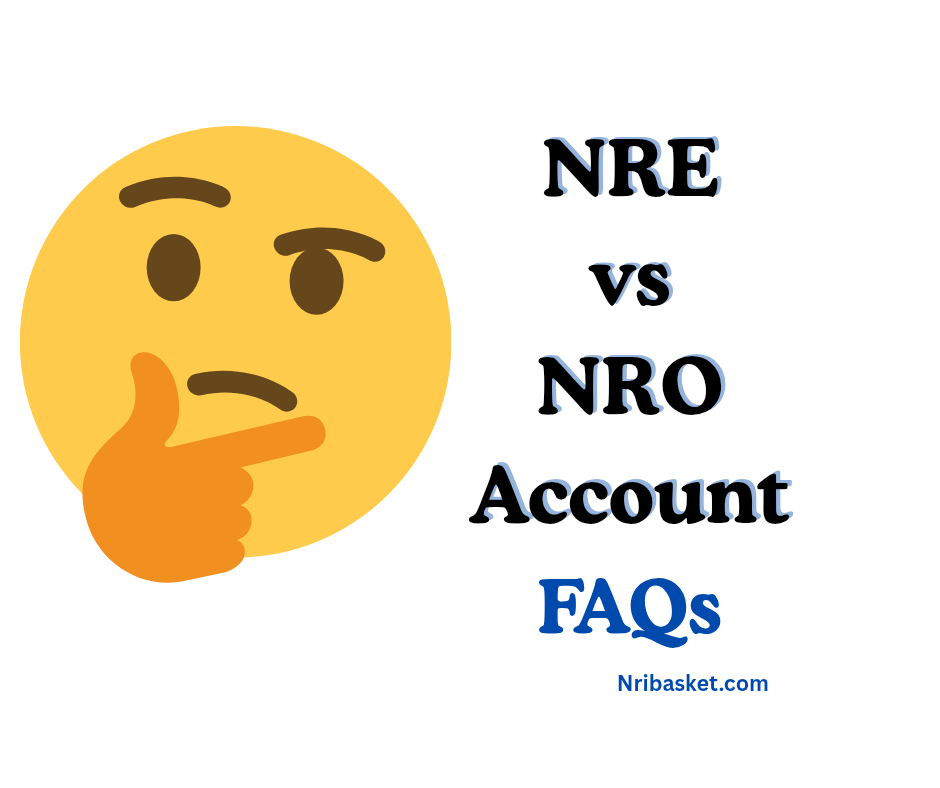
NRE vs NRO Account: Which One Should You Choose After Becoming an NRI?
After becoming an NRI, managing your money in India becomes an important responsibility. One of the first decisions you need to make is choosing between an NRE account and an NRO account.
Although both accounts are meant for NRIs, they serve different purposes. Choosing the wrong one can lead to tax issues, restricted fund transfers, or FEMA compliance problems. Let’s understand them in a simple way.
What Is an NRE Account?
An NRE (Non-Resident External) account is used to manage income earned outside India.
Choose an NRE Account If:
- You earn a salary outside India
- You run a business abroad
- You receive income from foreign sources
- You want to keep your overseas earnings in India
What Is an NRO Account?
An NRO (Non-Resident Ordinary) account is meant to manage income earned in India.
Choose an NRO Account If:
- You earn rent from property in India
- You receive a pension from India
- You earn interest, dividends, or any local income
Tax Treatment: NRE vs NRO
NRE Account – Tax-Free
- Interest earned is completely tax-free in India
- No TDS deduction
- Ideal for long-term savings
NRO Account – Taxable
- Interest is taxable in India
- TDS deducted at 30% plus applicable cess
- Refund or adjustment possible through ITR or DTAA
Repatriation Rules (Sending Money Abroad)
NRE Account
- 100% funds can be repatriated
- No upper limit
- No special approvals required
NRO Account
- Repatriation allowed up to USD 1 million per financial year
- Forms 15CA and 15CB required
- Suitable for limited overseas transfers
Investment Options
Choose NRE Account If:
- You want to invest foreign income in mutual funds, shares, or fixed deposits
- You may want to take the money back abroad later
Choose NRO Account If:
- You invest using income earned in India
- You are comfortable with restricted repatriation
So, Which Account Should You Choose?
Choose NRE Account If:
- You earn only outside India
- You want tax-free interest income
- You want smooth international fund transfers
Choose NRO Account If:
- You earn income from India
- You need local operational flexibility
- You want to manage rent, pension, or Indian earnings
Already Have a Resident Savings Account?
If you have become an NRI, you must either:
- Close your resident savings account, or
- Convert it into an NRO account
Failing to do so can result in:
- Account freezing
- Penalties under FEMA regulations
Important Things NRIs Must Remember
NRE and NRO accounts are not alternatives. They are designed for different income sources.
Many NRIs maintain both NRE and NRO accounts to manage foreign and Indian income separately while staying fully compliant.
Still Confused Between NRE vs NRO?
Drop your question in the comments and get clarity before making a financial mistake.
NRE vs NRO Account NRI Banking FAQs
NRE vs NRO Account Frequently Asked Questions
Long Answer: An NRE (Non-Resident External) account is used to park income earned abroad in Indian Rupees, while an NRO (Non-Resident Ordinary) account is meant for managing income earned in India such as rent, dividends, or pensions.
Long Answer: NRE accounts only accept deposits in foreign currency, which are then converted into INR. If you have Indian Rupee earnings, you must deposit them in an NRO account.
Long Answer: In an NRE account, you can freely transfer your funds (principal and interest) back to your country of residence without restrictions, subject to bank procedures.
Long Answer: You can repatriate up to USD 1 million per financial year from an NRO account after paying applicable taxes and providing necessary documents such as Form 15CA/CB.
Long Answer: Interest earned on an NRE account is tax-free in India, while interest on an NRO account is subject to TDS as per Indian tax laws.
Long Answer: Many NRIs maintain an NRE account for foreign income and an NRO account for income originating in India.
Long Answer: NRE accounts can only be held jointly with another NRI, while NRO accounts can be held with a resident Indian.
Long Answer: Rental income is Indian-sourced income and must be deposited in an NRO account.
Long Answer: Resident savings accounts must be converted to NRO after becoming an NRI.
Long Answer: NRE accounts allow deposits in foreign currency and benefit from favorable exchange rates.
Long Answer: Foreign income like overseas salary should be credited to an NRE account, not NRO.
Long Answer: Interest on NRE fixed deposits is fully exempt from tax and no TDS is deducted.
Long Answer: NRIs can claim DTAA benefits to reduce TDS on NRO interest by submitting required documents.
Long Answer: Pension received from India must be credited to an NRO account.
Long Answer: Since NRE accounts are maintained in INR, they are subject to exchange rate fluctuations.
Long Answer: NRO accounts are commonly used for EMIs, bills, and household expenses in India.
Long Answer: PAN is required for NRO accounts due to tax implications; for NRE it is recommended.
Long Answer: Both accounts can be used for investments, but repatriation rules differ.
Long Answer: NRE accounts can be used for spending in India via debit cards and transfers.
Long Answer: Non-conversion can lead to account freezing and FEMA penalties.
Long Answer: Dividends from Indian investments should be credited to an NRO account.
Long Answer: Minimum balance requirements vary by bank.
Long Answer: Most Indian banks allow online account opening with KYC verification.
Long Answer: NRIs cannot open new PPF accounts but can continue existing ones.
Long Answer: Nomination is allowed in both NRE and NRO accounts.
Long Answer: NRE FDs offer tax-free interest and full repatriation.
Long Answer: Agricultural income earned in India must be credited to NRO.
Long Answer: Both accounts are regulated under FEMA guidelines.
Long Answer: Accounts can be closed after settling balances and documentation.
Long Answer: If you earn both foreign and Indian income, maintaining both accounts is recommended.




